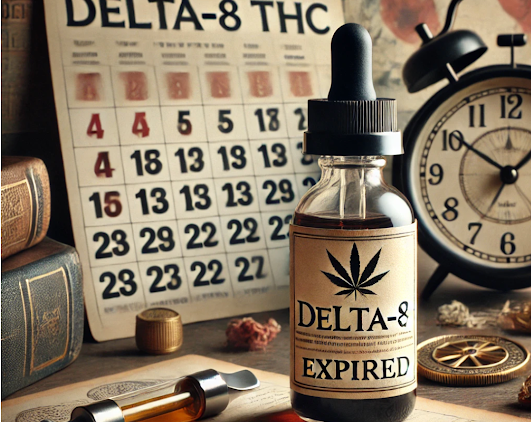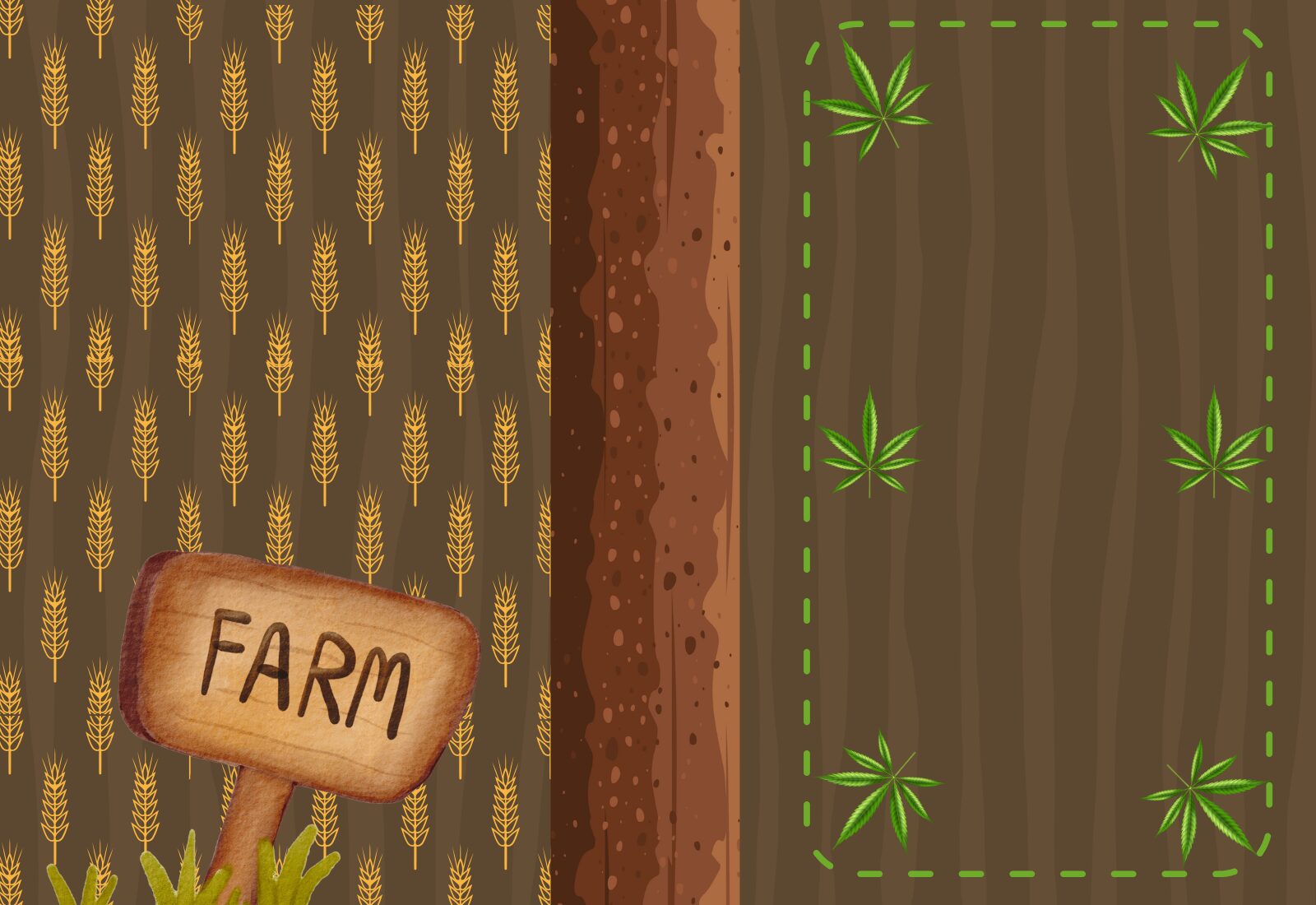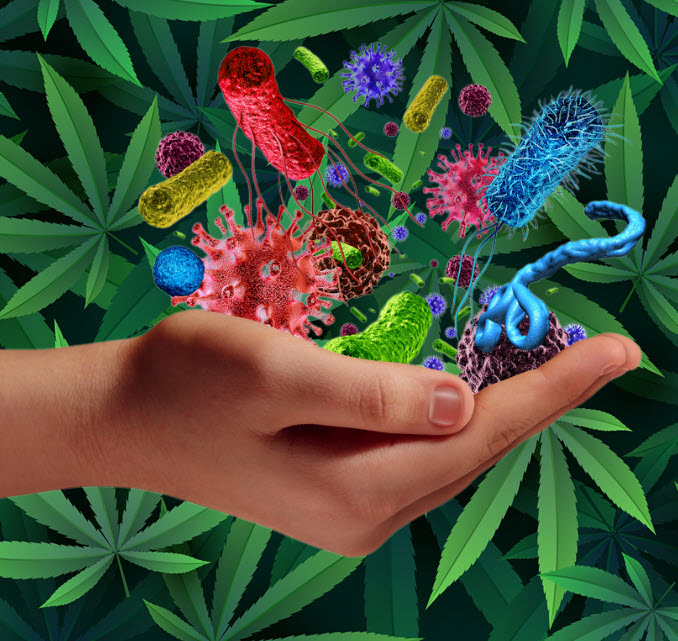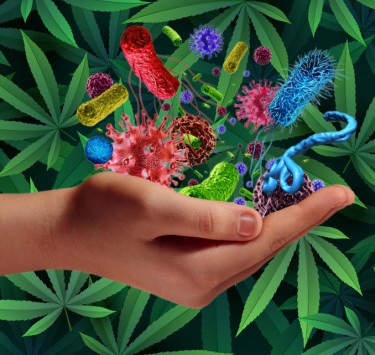Cannabis News
Does Delta 8 Expire? – Leafbuyer
Published
3 months agoon
By
admin


Delta 8 THC is rapidly carving its niche in the cannabis community, raising curiosity about its endurance over time. In this blog, we’ll venture into the core of Delta 8’s longevity, analyzing how this cannabis component holds up against the test of time.
Prepare to explore the decisive key factors that influence its shelf life and learn effective methods to keep your Delta 8 in pristine condition. With expert advice on proper storage and handling, we’re here to ensure that every puff remains as potent and enjoyable as the first. Let’s discover the keys to extending the vitality of your Delta 8 stash.
What is Delta 8?
Delta 8 THC, also known as delta-8-tetrahydrocannabinol, is a minor cannabinoid found naturally in the cannabis plant, but typically only in small amounts. It is chemically similar to Delta 9 THC, the primary psychoactive component in marijuana, but Delta 8 THC offers a less intense and more clear-headed experience.
Often referred to as “marijuana-lite” or “diet weed,” it is believed to cause less anxiety and paranoia compared to its more potent counterpart. Delta 8 binds to the same cannabinoid receptors in the brain and body, influencing mood, pain, and other sensations. Its legal status varies by location, influenced by its derivation from either hemp or cannabis and the specific laws of the area.
Can Delta 8 Expire?
Delta-8 THC products do indeed have expiration dates, which can vary widely based on the formulation and quality of the ingredients used. Each type of Delta-8 product may degrade at a different rate, influenced by factors such as exposure to air, light, and temperature. Here’s a breakdown of the typical longevity for various Delta-8 forms:
Delta-8 THC Oils: These can last up to two years if stored in a cool, dark place. The carrier oil, such as MCT or hemp seed oil, plays a significant role in the preservation of the cannabinoid.
Delta-8 THC Gummies: These edible products are typically stable for up to one year if stored properly. To maximize their shelf life, keep them in a cool, dry place away from direct sunlight.
Delta-8 THC Cartridges: Vape cartridges can maintain their potency for up to a year. It’s essential to properly store them upright and in environments without extreme temperatures to avoid leakage and potency loss.
Delta-8 THC Infused Flower: Typically, these remain fresh for about a year. Proper storage involves keeping them in containers that control humidity and protect against UV light.
High-quality Delta-8 products from reputable brands like Candy Cloud tend to last longer due to superior extraction methods and fewer additives. Products with minimal and high-quality ingredients, like those containing only Delta-8 distillate and a natural carrier oil, are less likely to contain impurities that could accelerate degradation.
Signs that Your Delta 8 Product Has Expired
It’s important to recognize the signs that your Delta 8 THC product may have expired or degraded. Here are some key indicators:
Change in Color:
- Oils may become darker over time.
- Gummies might lose their vibrant color, appearing dull or discolored.
- Flowers can turn brownish, losing their green freshness.
Change in Consistency:
- Oils and tinctures might thicken or become cloudy.
- Gummies could harden or become overly sticky.
- Concentrates like shatter or wax may become crumbly or gooey.
Off Smell or Taste:
- A rancid or unusual smell is a strong indicator that an oil or edible has gone bad.
- Any unexpected change in taste, such as bitterness or a lack of flavor, can suggest degradation.
Reduced Efficacy:
- If the product no longer produces the expected effects, such as relaxation or mild euphoria, it might have lost its potency.
Visible Mold or Contaminants:
- Especially pertinent for flower products, any signs of mold or mildew mean the product should be discarded.
- Visible debris or changes in texture can also indicate contamination.
Ways to Extend the Shelf Life of Your Delta 8 Products

Proper storage and handling can significantly extend the shelf life of your Delta 8 THC products. Here are effective strategies to keep them potent and fresh for as long as possible:
Avoid Direct Sunlight:
Store Delta 8 products in a dark, cool place. UV light can degrade cannabinoids quickly, so keeping products away from sunlight is essential.
Control Temperature:
Keep products away from extreme temperatures. A stable, cool environment is ideal, as heat can accelerate the breakdown of cannabinoids and other organic compounds.
Use Airtight Containers:
Oxygen exposure can also degrade Delta 8 over time. Using airtight containers helps to minimize air exposure. For oils and tinctures, consider using dark glass bottles with airtight seals. For edibles and gummies, resealable bags or airtight food storage containers work well.
Maintain Proper Humidity:
For flower products, maintaining humidity around 62% can prevent drying out or mold growth. Humidity control packs in storage jars can be very effective.
Refrigeration:
For certain products like edibles and some tinctures, refrigeration can help extend a longer shelf life. However, check the label or with the manufacturer, as this can sometimes affect texture or consistency.
Keep Them Upright:
Especially important for liquid products like tinctures and vape cartridges. This prevents leakage and helps avoid unwanted exposure to air.
Avoid Contamination:
Use clean, dry utensils or hands when handling products like edibles or flowers. This prevents the introduction of moisture or microbes that can spoil the product.
Check for Expiration Dates:
Always note the manufacturer’s recommended expiry date and storage instructions. This can offer guidance tailored to the specific product’s formulation and packaging.
FAQs
Can you consume expired Delta 8 gummies?
While consuming expired Delta 8 gummies isn’t typically dangerous, it’s not recommended. Expired gummies may have lost their potency, and their taste and texture could be off. There’s also a risk of consuming degraded ingredients that could lead to discomfort or a less effective experience.
Is Delta 8 legal?
The legality of Delta 8 THC varies by location. In the United States, Delta 8 is federally legal under the 2018 Farm Bill if it is derived from hemp containing less than 0.3% Delta 9 THC on a dry weight basis. However, some states have specifically banned or regulated Delta 8, so it’s crucial to check the local laws in your state or country.
Does Delta 8 get you high?
Yes, Delta 8 THC can produce a high, though it is generally considered to be less potent and less psychoactive than Delta 9 THC. Users often report a clearer, milder high with less anxiety and paranoia, which makes it appealing to those who find Delta 9 THC to be too intense.
What is the shelf life of Delta 8 THC?
The shelf life of Delta 8 THC products can vary based on the product form and storage conditions. Generally, properly stored Delta 8 oils and tinctures can last up to 2 years, gummies and edibles for around 1 year, and vape cartridges for up to 1 year. Proper storage involves keeping products in a cool, dark, and dry place to prevent degradation and extend their shelf life.
Final Thoughts
Delta 8 THC products do expire, with a variable shelf life depending on their form. To ensure the best experience, use your Delta 8 products before their effectiveness wanes. Proper storage, away from extreme conditions, can help maintain their quality, allowing you to enjoy the benefits of Delta 8 THC safely and effectively for as long as possible.
You may like
Cannabis News
California Appeals Court Rejects Marijuana Grow Permit, Citing Federal Illegality
Published
12 hours agoon
November 22, 2024By
admin
In a landmark decision that highlights the tension between state and federal cannabis laws, a California appellate court ruled on October 29th that property owners can refuse to allow the transportation of cannabis across their land via easements, even when the cannabis operation is approved by local authorities.
The Second District Court of Appeal’s unanimous decision draws attention to private property rights in a context where cannabis remains federally illegal, but state law allows licensed cultivation, distribution and sale. Presiding Justice Albert Gilbert stated, “No matter how much California voters and the Legislature might try, cannabis cultivation and transportation are illegal in California as long as it remains illegal under federal law.” JCCrandall LLC v. County of Santa Barbara, Case No. B333201, 2024 WL 4599304, Oct. 29, 2024.
Unless the California Supreme Court grants review – which I would not rule out – the decision empowers private property owners to refuse to contract with cannabis businesses, and restricts local government from approving cannabis operations that implicate the property rights of neighbors who object.
The case at hand
The dispute centered around a cannabis cultivation operation in Santa Barbara County, where JCCrandall LLC challenged a conditional use permit granted by the County to its neighbor, Santa Rita Holdings Inc. The critical issue was that Santa Rita Holdings could only access its 2.5-acre cannabis farm via an unpaved road crossing JCCrandall’s property through a pre-existing easement. JCCrandall grows oats and barley.
JCCrandall’s primary concern? It raised a number of complaints with the Santa Barbara County Supervisors about truck traffic and night operations, which did not gain traction, but in the Court of Appeal JCCrandall focused on what it claimed was potential liability associated with having federally illegal substances transported across its property, even though County regulators found that the Santa Rita operation was fully compliant with state and local laws.
Key legal findings
The appellate court’s decision hinged on several crucial points:
- Property Rights: The court emphasized that “the right to exclude others is the essence of the right of property ownership” and classified it as a fundamental vested right.
- Federal Supremacy: The panel determined that allowing cannabis transportation across private property “defies the Supremacy Clause” of the U.S. Constitution.
- State vs. Federal Law: While cannabis might be legal under California law, the court ruled that federal law’s prohibition takes precedence in this context.
California cannabis industry implications
Legal experts suggest this ruling could have far-reaching consequences for California’s cannabis industry. Section 1550.5(b) of the California Civil Code makes contracts within California involving cannabis lawful and enforceable, and Santa Rita Holdings bet the ranch on that argument. But the Court of Appeal held that the statute could not compel a landowner to allow cannabis to travel across its property on a pre-existing easement. Licensed operators may find it harder to do business because neighbors who have property rights affected by a cannabis business can object, and, under the JCCrandall ruling, local government must yield to those objections.
An example might be a cannabis dispensary that depends on access to its parking lot via an easement or is located in a shopping center where other lessees have rights to object to tenants notwithstanding the approval of the landlord. In cultivation, many cannabis farms depend on vehicular access through easements because they are remote and do not always have direct access to public thoroughfares, or they depend on water sourced from other properties pursuant to agreements made by prior owners who grew traditional crops. These neighbors might not need to show any negative impact on their property, but can argue that they could be found complicit in federally illegal activities.
I think the most problematic language in the JCCrandall ruling is the following, which might draw the attention of the California Supreme Court and cause it to grant review: “For as long as an easement is enjoyed, its mode and manner of use shall remain substantially the same as it was at the time the easement was created. The County argues the easement was used for agricultural purposes. But there is a vast difference between legal and illegal agricultural purposes.” (Emphasis added.) If California has determined that cannabis cultivation is legal – as it has – and state courts routinely enforce contracts involving cannabis, it is a pretty bold step to declare the use of a lawful pre-existing easement illegal simply because the agricultural crop is cannabis and take away easement access from Santa Rita.
Looking ahead
This decision creates new challenges for cannabis businesses in California, and will result in more disputes among neighbors. While the Biden administration has shown signs of easing federal marijuana restrictions, this ruling demonstrates that the federal-state law conflict continues to create significant legal hurdles for the cannabis industry.
California court decisions also can be persuasive authority in other states, so we might see similar litigation (and decisions) elsewhere in the country where cannabis has been legalized.
The case serves as a reminder that despite California’s progressive stance on cannabis, federal prohibition continues to cast a long shadow over the industry’s operations and development. As the cannabis landscape continues to evolve, this ruling may prompt businesses to reassess their property arrangements and local governments will certainly have to reconsider their permitting processes to give more careful consideration to objections by neighbors who claim that their property rights are implicated by cannabis operations.
Note: This post was first published earlier this month on the Alger ADR Blog.
Cannabis News
Autoimmune Conditions Are Rising Fast in American Medicine, Can Cannabis Help?
Published
2 days agoon
November 21, 2024By
admin

Why Are Autoimmune Conditions On The Rise? And How Cannabis Can Help
Autoimmune diseases refer to a group of medical conditions that occur as a result of the immune system attacking your own tissues.
In a normal human body, the immune system is responsible for protecting the body by producing antibodies that prevent toxins, cancer cells, and viruses from harming the body. However, when one is struck by an autoimmune disorder, the immune system is no longer able to distinguish the difference between dangerous cells and healthy cells. As a result, the healthy cells are attacked, too.
Today, we know of around 100 different kinds of autoimmune conditions. Some of the most common examples of autoimmune conditions include rheumatoid arthritis (RA), lupus, inflammatory bowel disease, celiac disease, Type 1 diabetes, multiple sclerosis (MS), and the Guillain-Barre syndrome (GBS) to name a few. Others include Graves’ disease, Hashimoto’s thyroiditis, psoriasis, and vasculitis.
According to the National Health Council, around 50 million Americans are affected by autoimmune diseases today. This is a conservative estimate, considering that several autoimmune conditions are tricky to treat and so many people go undiagnosed for long periods of time. It’s worrisome to note that there are more people developing autoimmune diseases these days, many of which have reached levels comparable to epidemics.
But cannabis can help!
How Cannabis Can Help Curb And Manage Autoimmune Diseases
Not one single cause is responsible for the alarming growth of autoimmune diseases, though there are several factors at play. While there isn’t just one cause we can point at, it’s certain the reasons lie in our environment. After all, human genetics haven’t changed significantly yet the chemicals, toxins, and pollutants in our food and everyday items have risen dramatically.
In addition, people are getting less sleep than ever; stress rates are through the roof, and people are constantly worried. There is a clear link between psychological stress and physical health as well as immunity, which is why it isn’t unusual – it’s even common – to see many autoimmune disease cases flare up after people experience severe stress caused by grief, an accident, job loss, or the death of a loved one. These highly stressful and traumatic conditions wreak havoc on the body’s immune response, causing inflammation all over the body.
Conventional treatments prescribed to treat autoimmune conditions are focused on taming inflammation; these usually include steroids but also some non-steroidal drugs. These drugs often come with unwanted side effects, but research has shown that cannabis can work with the endocannabinoid system through THC and CBD, as well as other cannabinoids, to simulate similar results. In one study for example, we can see the clear association of the endocannabinoid system for neurodegenerative and inflammatory processes seen in Multiple Sclerosis and Amyotrophic Lateral Sclerosis.
There has also been an increasing number of studies proving the efficacy of cannabis for treating several autoimmune conditions.
Cannabis For Multiple Sclerosis
Multiple sclerosis is one of the autoimmune conditions where a growing number of studies have come out supporting the therapeutic benefits of cannabis for. In a 2024 study, patients with multiple sclerosis reported several improvements in quality of life after using cannabis-based medical products (CBMPs). For the study, British investigators analyzed the impact of cannabis based medicinal products made from either oil or extracts in 141 patients who were enrolled in the UK Medical Cannabis Registry.
The researchers then analyzed the changes in patient outcomes after a month, then three and 6 months after. According to the patients themselves, they were able to sustain improvements in their mental and physical health after marijuana therapy.
“This case series demonstrates a potential association between the initiation of CBMPs and improved patient reported outcomes in sleep, anxiety, and general HRQoL [health-related quality of life] measures, over six months,” said the study authors. “Additional measures for HRQoL, including various physical and mental health subdomains, also exhibit improvements up to six months when compared to baseline,” the authors concluded.
In another study from 2023, patients with multiple sclerosis reported significant improvements in symptoms after cannabis use. For the study, researchers from the Dent Neurologic Institute in Buffalo, New York, analyzed the medical records of 141 patients with multiple sclerosis, who were also legally authorized to consume medical marijuana products. They then analyzed data from the patients after one up to 4 follow-up sessions after the initial session of cannabis therapy. Sixty-five percent of patients consumed 1:1 THC:CBD tinctures.
According to the authors: “The results of this study indicate that use of MC [medical cannabis] to alleviate symptoms of MS is largely efficacious, with improvement in pain (72 percent of patients), muscle spasticity (48 percent of patients), and sleep disturbance (40 percent of patients) frequently reported.”
“More than half of opioid users at baseline were able to either discontinue or decrease their opioid use after starting MC. The mean daily MME [morphine milligram equivalents] was significantly reduced from the initial visit (51 mg) to the last follow-up visit (40 mg). This is consistent with previous literature showing that MC legalization is associated with decreased opioid use and that MC use is associated with decreased opioid use in patients with chronic pain. These findings indicate that MC may represent an alternative analgesic to opioids for some patients,” they wrote.
Anecdotal Evidence
While more studies are needed to determine cannabis’ effect on other autoimmune conditions such as rheumatoid arthritis, we can rely on anecdotal evidence. In 2020, data from the medical journal, Rheumatology, revealed that patients who have this condition, along with those who have lupus and fibromyalgia, consume cannabis.
In fact, it was reported that marijuana was extremely common especially for patients with fibromyalgia. “In this meta-analysis, we found that one in six patients suffering from rheumatologic disease actively consumes cannabis, reducing pain reduction… A favorable effect of cannabis on pain in our meta-analysis reinforces the idea that cannabis could be used for analgesic purposes,” the authors concluded.
Conclusion
Cannabis is a safe and natural way to help prevent and treat the symptoms of autoimmune disease. It targets inflammation at its root, and is a proven natural way to help cope with stress, pain, insomnia, and inflammation all while protecting the brain. However, it’s important to ensure you medicate with clean, organic sources of marijuana.
AUTOIMMUNE AND CANNABIS, READ ON…

The U.S. Senate’s version of the Farm Bill finally landed this week. They’re calling it the Rural Prosperity and Food Security Act of 2024 (the “Senate bill”). The Senate bill follows on the House’s proposal, called the Farm, Food and National Security Act of 2024 (the “House bill”), offered in May. Neither the Senate bill nor the House bill would preempt state or Indian law regarding hemp or the regulation of hemp products. This means states and tribes will retain a lot of latitude in regulating hemp and hemp-derived products– which gets people fired up.
Aside from giving states some runway, the Senate bill and the House bill differ in key respects regarding hemp. Therefore, these august bodies must confer and reconcile their sundry proposals. That could happen in 2024, but seems more likely in 2025 when the new Congress convenes. As of this week, though, we finally have a framework.
The Senate Bill re-defines “hemp” and defines “industrial hemp”
Section 10016 of the Senate bill (“Hemp Production”) amends the definition of “hemp.” Hemp was defined in the 2018 Farm Bill and removed from the federal Controlled Substances Act (CSA), taking us on a truly wild ride. See: What Happened to Hemp? (“What Happened”). The Senate bill also gives us a definition for “industrial hemp.” Here are those definitions, with points of emphasis in bold:
(1) Hemp. The term “hemp” means (A) the plant Cannabis sativa L. and any part of that plant, including the seeds thereof and all derivatives, extracts, cannabinoids, isomers, acids, salts, and salts of isomers, whether growing or not, with a delta-9 total tetrahydrocannabinol concentration (including tetrahydrocannabinolic acid) of not more than 0.3 percent on a dry weight basis; and (B) industrial hemp.
(3) Industrial Hemp. The term “industrial hemp” means the plant Cannabis sativa L. if the harvested material (A) is only (i) the stalks of that plant, fiber produced from those stalks, or any other manufactured product, derivative, mixture, or preparation of those stalks (except cannabinoid resin extracted from those stalks); (ii) whole grain, oil, cake, nut, hull, or any other compound, manufactured product, derivative, mixture, or preparation of the seeds of that plant (except cannabinoid resin extracted from the seeds of that plant); or (iii) viable seeds of that plant produced solely for production or manufacture of any material described in clause (i) or (ii); and (B) will not be used in the manufacturing or synthesis of natural or synthetic cannabinoid products.
The new regime
Again, the definitional stuff in bold is what I want to emphasize.
First, the Senate bill keeps the THC threshold at 0.3 percent, which is an arbitrary number we’ve been advocating against for years. The Senate bill mirrors the House bill in this respect, though, so we are stuck with this, unless Ron Paul gets his way.
Second, the Senate bill keeps the 2018 Farm Bill’s total THC standard, including THCA. The House bill does this too. This was fairly predictable: in What Happened, I wrote that we could “expect the total THC standard to remain, which means that actual Delta-9 THC won’t be the only metric for calculating THC content.”
We’ve also explained on this blog that the 2018 Farm Bill and USDA rules mandate total THC testing on pre-harvest hemp batches, but do not mandate such testing on post-harvest hemp or hemp products. The Senate bill doesn’t change this paradigm, which means the “loophole” for gas station weed remains open. This proposal is a big win for opponents of the House bill’s “Miller Amendment,” which would narrow the definition of “hemp” to exclude intoxicating hemp-derived substances.
Third, the Senate bill introduces a new definition and framework for industrial hemp. The House bill does this too, albeit slightly differently. The idea here is to invite farmers to grow hemp for fiber and grain purposes, while freeing them from regulatory burdens with the Department of Agriculture and criminal exposure with the Department of Justice. More specifically, for “industrial hemp” growers, the Senate bill:
- removes background check requirements;
- instates “relaxed regulatory requirements” for sampling and inspection methodologies (which will need to be adopted by rule); and
- develops a certified seed program.
The Senate bill also makes any hemp producer ineligible to grow hemp for five years if that producer, “with a culpable mental state greater than negligence, produces a crop of hemp that is inconsistent with that license.”(Hint: use the seed program.) The proof standard here seems like it could be an issue, and even if anyone has been adjudicated as growing marijuana under the guise of hemp, Farm Bill ineligibility seems like a far-off concern.
Bottom line
The big takeaway for me is that the Senate bill leaves the door open for intoxicating hemp products, whereas the Miller Amendment to the House bill does not. Something’s gotta give. And it needs to happen soon, because we’re already long overdue. As I explained in a webinar last week, the Farm Bill deals with the nation’s entire food supply, not just hemp. Therefore, this is not like with the SAFE Banking Act, where we have a proposed law specific to cannabis that may or may not ever pass. The Farm Bill must pass, and soon.
Stay tuned and we’ll keep you updated on any major happenings. For more on this topic, check out our massive hemp and CBD archive, or these specific, recent posts:

4 Ways Marijuana Can Help You Have A Better Thanksgiving

Can Big Alcohol Help The Cannabis Industry

California Appeals Court Rejects Marijuana Grow Permit, Citing Federal Illegality

Expert Lighting Tips For Successful Indoor Growing Weed

Acne And CBD: Exploring Alternative Dermatological Solutions

Can I Gift Marijuana This Holiday Season?

The Best Cocktails For An Easy Festive Thanksgiving

420 Vacations: Planning the Perfect Weed Vacation

Can Microdosing Help Manage Holiday Family Anxiety

11 Weed Shows and Movies on Netflix Worth Watching

Distressed Cannabis Business Takeaways – Canna Law Blog™

United States: Alex Malyshev And Melinda Fellner Discuss The Intersection Of Tax And Cannabis In New Video Series – Part VI: Licensing (Video)

What you Need to Know

Drug Testing for Marijuana – The Joint Blog

NCIA Write About Their Equity Scholarship Program

It has been a wild news week – here’s how CBD and weed can help you relax

Cannabis, alcohol firm SNDL loses CA$372.4 million in 2022

A new April 20 cannabis contest includes a $40,000 purse

Your Go-To Source for Cannabis Logos and Designs

UArizona launches online cannabis compliance online course
Trending
-

 Cannabis News2 years ago
Cannabis News2 years agoDistressed Cannabis Business Takeaways – Canna Law Blog™
-

 One-Hit Wonders2 years ago
One-Hit Wonders2 years agoUnited States: Alex Malyshev And Melinda Fellner Discuss The Intersection Of Tax And Cannabis In New Video Series – Part VI: Licensing (Video)
-

 Cannabis 1012 years ago
Cannabis 1012 years agoWhat you Need to Know
-

 drug testing11 months ago
drug testing11 months agoDrug Testing for Marijuana – The Joint Blog
-

 Education2 years ago
Education2 years agoNCIA Write About Their Equity Scholarship Program
-

 Cannabis2 years ago
Cannabis2 years agoIt has been a wild news week – here’s how CBD and weed can help you relax
-

 Marijuana Business Daily2 years ago
Marijuana Business Daily2 years agoCannabis, alcohol firm SNDL loses CA$372.4 million in 2022
-

 California2 years ago
California2 years agoA new April 20 cannabis contest includes a $40,000 purse




